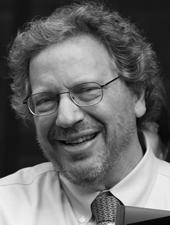Munoz, Adriana, Yamrom, Boris, Lee, Yoon-ha, Andrews, Peter, Marks, Steven, Lin, Kuan-Ting, Wang, Zihua, Krainer, Adrian R., Darnell, Robert B., Wigler, Michael, Iossifov, Ivan (May 2017) De novo indels within introns contribute to ASD incidence. bioRxiv. p. 137471. (Unpublished)
Abstract
Copy number profiling and whole-exome sequencing has allowed us to make remarkable progress in our understanding of the genetics of autism over the past ten years, but there are major aspects of the genetics that are unresolved. Through whole-genome sequencing, additional types of genetic variants can be observed. These variants are abundant and to know which are functional is challenging. We have analyzed whole-genome sequencing data from 510 of the Simons Simplex Collections quad families and focused our attention on intronic variants. Within the introns of 546 high-quality autism target genes, we identified 63 de novo indels in the affected and only 37 in the unaffected siblings. The difference of 26 events is significantly larger than expected (p-val = 0.01) and using reasonable extrapolation shows that de novo intronic indels can contribute to at least 10% of simplex autism. The significance increases if we restrict to the half of the autism targets that are intolerant to damaging variants in the normal human population, which half we expect to be even more enriched for autism genes. For these 273 targets we observe 43 and 20 events in affected and unaffected siblings, respectively (p-value of 0.005). There was no significant signal in the number of de novo intronic indels in any of the control sets of genes analyzed. We see no signal from de novo substitutions in the introns of target genes.
| Item Type: | Paper |
|---|---|
| Subjects: | diseases & disorders > mental disorders > personality disorders > autism bioinformatics > genomics and proteomics > genetics & nucleic acid processing > DNA, RNA structure, function, modification > copy number variants Investigative techniques and equipment > assays > whole genome sequencing |
| CSHL Authors: | |
| Communities: | CSHL labs > Iossifov lab CSHL labs > Krainer lab CSHL labs > Wigler lab CSHL Post Doctoral Fellows |
| Depositing User: | Matthew Dunn |
| Date: | 24 May 2017 |
| Date Deposited: | 07 Jan 2019 16:47 |
| Last Modified: | 18 Nov 2025 20:47 |
| URI: | https://repository.cshl.edu/id/eprint/37537 |
Actions (login required)
 |
Administrator's edit/view item |









